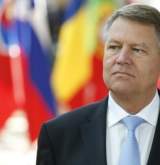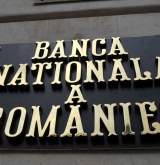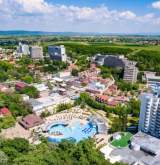- Ultima Oră
- Secțiuni
-
Actualitate
Actualitate
-
Stiri despre Investitii
Stiri despre Investitii
-
Stiri din Business
Stiri din Business
-
IT & Media
IT & Media
-
Lifestyle
Lifestyle
-

-
-
Special
Wall-Street Special
Alegeri 2024: cifre, promisiuni și speranțe
![Începe cursa promisiunilor electorale: Băluță promite aeroport nou în București]() Începe cursa promisiunilor electorale: Băluță promite aeroport nou...mai multe
Începe cursa promisiunilor electorale: Băluță promite aeroport nou...mai multeecomTEAMStories: poveștile din spatele magazinelor online românești
![Legume și fructe bio, comandate online: Froopt.ro pregătește abonamente și crește pe zona comenzilor plasate de companii]() Legume și fructe bio, comandate online: cum arată planurile Froopt.romai multe
Legume și fructe bio, comandate online: cum arată planurile Froopt.romai multe - Conferințe






















































Comentarii pe articolul Romania signs Nabucco intergovernmental agreement
Energy Security
Special Statement by Fund for EU Energy Security in the address to European nations
24 June 2009
Members of the Fund have decided to make a public statement towards Nabucco inadaptability to decrease EU energy independence in spite of current persistent attempts to enforce this project realization upon our European countries as so-called “strategic priority for EU energy security upgrade”.
Due to latest data of our experts just by 2030 Europe will be on the verge of gas starvation; EU dependence on gas import will increase to 70%. And that is why in conditions of severe limitations and hard cost saving, which are dictated to us by current crisis and its after-effects, EU should agree only on those new gas projects that lead to decline in gas cost price. But the same cannot be said of Nabucco. Just now EU has earmarked 250 million euros of seed funding for Nabucco project in its coming budget. The project’s total cost has been planned at the level of 8 billion euros ($10 bil.), although it becomes clear now that Nabucco full cost, as well as, gas price for Europe’s energy consumers, will be constantly growing. And it’ll happen not because of our financial difficulties, coming from current global economic crisis, but because of recently adopted decision to turn Iraq into main gas supplier of Nabucco in order to create necessary resource base for this pipeline (over 30 billion cubic meters per year).
The idea of Iraqi, more specifically, Kurdish gas supplies for Nabucco are pushed by our American allies, who, surely, are interested in quick realization of the project. But the US stake is motivated exclusively by their geopolitical plans, not by their striving for assurance of EU energy security. At the same time a veil is drawn over the fact that Kurdish gas is unable to fill Nabucco for gas at all, as well as, to justify the pipeline’s construction economically, even if Azerbaijan and Turkmenia continue to be gas suppliers for Nabucco. It is kept close that Europe will have to invest over 8 billion dollars in development of gas fields in Iraqi Kurdistan! But that is pretty nearly the same sum as the full cost of Nabucco project!
Moreover, as considered by initiators of this variant, main gas deposits for full filling of Nabucco pipeline are located in Northern Iraq, whose territory continues to be debatable ground for local Kurds, Arabs and ethnic Turkmen. It creates vast complications for normal work of such companies and corporations as Crescent Petroleum, Dana Gas, OMV and MOL, agreed to take part in gasfield development for Nabucco. As to Iraqi Ministry of Oil and Gas, it is not likely to lend help them in the case of that chaos, which prevails in the entire oil and gas industry of Iraq now. In addition, recently Baghdad has officially declared that “local gas users’ needs will have priority over any gas export to Europe through Nabucco pipeline”!
It is not improbable that in the near future Kurds will begin to intimidate EU on the question of quick realization of their right to secede through forming own nation-state by analogy with current Turkey, which tries to use Nabucco for applying pressure to us on the question of Turkish quick entry in the EU. In fact, there is no secret that now, after US raids to Iraq, local Kurds have greatly activated their struggle for creation of own state there. And, surely, it extremely destabilizes situation in the immediate region of Nabucco pipeline’s passing, which lands reliability and security of Nabucco operation in great difficulties.
Thus, every step of Nabucco realization carries more political background than economical practicability. The project are forced us as “the most important alternative to Russian-controlled imports” although it is obvious that its realization puts our European consumers in great dependence of so economically disputable and politically unstable gas supplier as Iraqi Kurdistan. So if Europe wants to keep its independent positions in the world, it shouldn’t be tied to the chariot of the USA and turn Nabucco project into “EU strategic priority in the field of Europe’s energy supply”, because not political motives, but economical efficiency, reliability and safety factors should be main criteria for selection of any our energy transit lines and suppliers.
The head and founder of the Fund,
Senior Adviser to European Policy Centre
on Energy and Environment,
Chair of EU Task Force on Rational
Use of Energy Jorgen Henningsen
Inapoi la articolul Romania signs Nabucco intergovernmental agreement